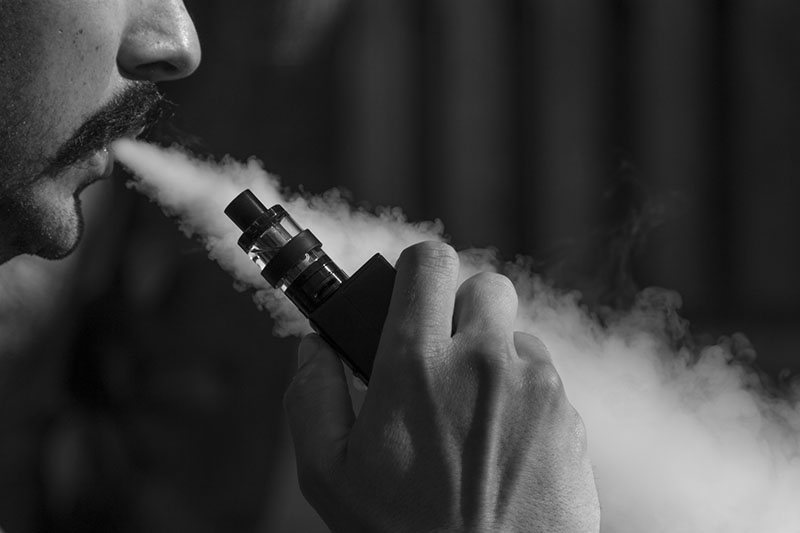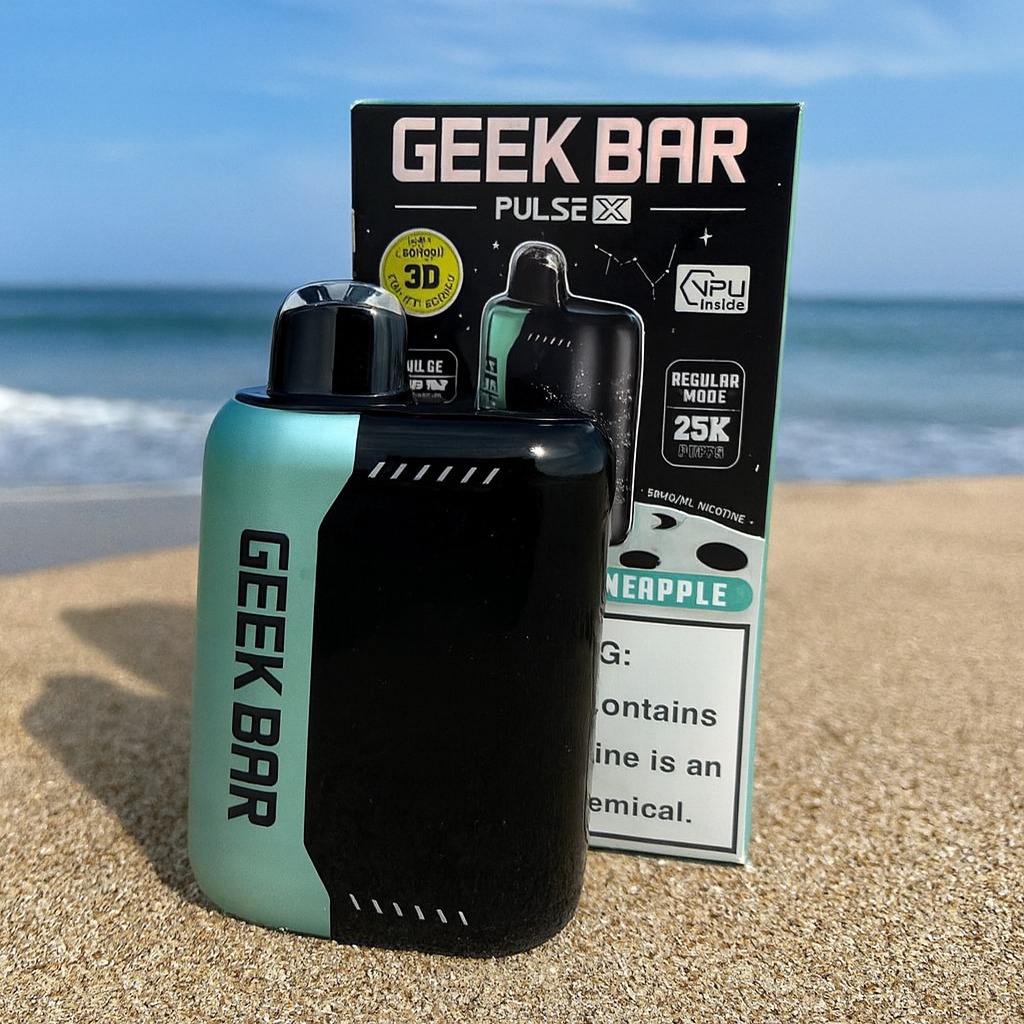Vaping, at its most basic level, involves inhaling vapor rather than smoke. Unlike cigarettes, which burn tobacco to release nicotine, vaping devices heat an e-liquid to produce vapor that can be inhaled. For beginners wondering “how do you vape?” or “how do I vape safely?” the answer begins with understanding three key elements: the anatomy of a vaporizer, the various styles of vaporizers, and the different inhalation techniques that shape your vaping experience. Once you understand these foundations, you can confidently explore the world of Vape Kits, disposable vapes, and advanced setups. This will help you avoid common issues like throat irritation and ensure a safer, smoother transition away from smoking.
Anatomy of a Vaporizer
Virtually all vaping devices share the same core components, though the form factor and features may vary. Whether you’re using vape pens, pod systems like the SMOK Nord 5, or advanced box mods, these elements function like an engine, ignition, and fuel tank—together determining flavor, vapor production, and satisfaction:
- Battery 🔋 – Powers the device, available in internal lithium-ion packs or replaceable 510-thread batteries.
- Atomizer / Vape Coil 🔥 – Uses wire and cotton to heat the e-liquid into vapor.
- Tank or Cartridge 💧 – Holds the e-liquid; may be refillable or pre-filled.
- Mouthpiece 👄 – The part you inhale vapor through.
- Manual Fire Button / Air Pressure Activation ⚡ – Triggers vaporization either by pressing a button or drawing automatically.
- Screen & Controls 🖥 – Present on more advanced mods for wattage, temperature, and monitoring.
Anatomy of a Vape
Color-coded blocks + leader lines, contrast-safe, and screen-reader labels.
How Vape Batteries Create Heat Without Flame
Like smoke, vapor is created by heat. Cigarettes and cigars rely on open flame, but an electronic device like a vape depends on battery power. When activated—either by a manual fire button or automatic draw—the battery sends current to the resistance coil, which heats soaked cotton and vaporizes the liquid. This flame-free system eliminates combustion, which means no ash, tar, or smoke byproducts. For many former smokers, this is the first step toward smoking cessation, reducing exposure to carcinogens.
Types of vape batteries:
- Internal batteries – Built-in lithium-ion packs, charged by USB-C or micro-USB.
- External batteries – Removable 510-thread batteries, often with larger capacities.
⚠️ Safety Tip: Never carry loose batteries in your pocket. Use a protective case and the manufacturer’s recommended charger to avoid overheating.
Role of Atomizers in Vaporizing E-Liquid
The atomizer, often called the Vape Coil, is the beating heart of any vape. This small but powerful component uses conductive wire wrapped around cotton to heat e-liquid into inhalable vapor. When electricity passes through, it generates heat, pulling e-liquid from the wick and transforming it into vapor clouds.
Key factors that impact your experience:
- Coil resistance: Low-resistance coils (<1.0Ω) are built for DTL Vaping, producing bigger clouds. Higher resistance coils (>1.0Ω) work better for MTL Vaping, delivering a tighter draw.
- VG ratio: The thickness of your juice should match your coil—high-VG for sub-ohm tanks, balanced 50/50 for pods.
- Nicotine level: The right balance prevents cravings without causing harshness or throat irritation.
Choosing the correct resistance coil, VG ratio, and nicotine level ensures smoother puffs, longer coil life, and more satisfying sessions.
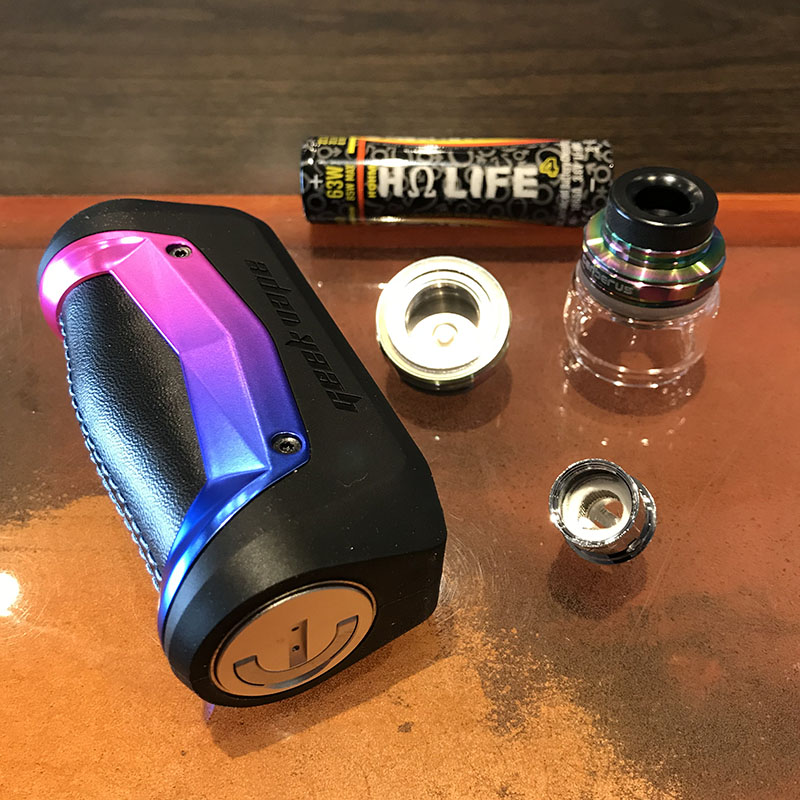
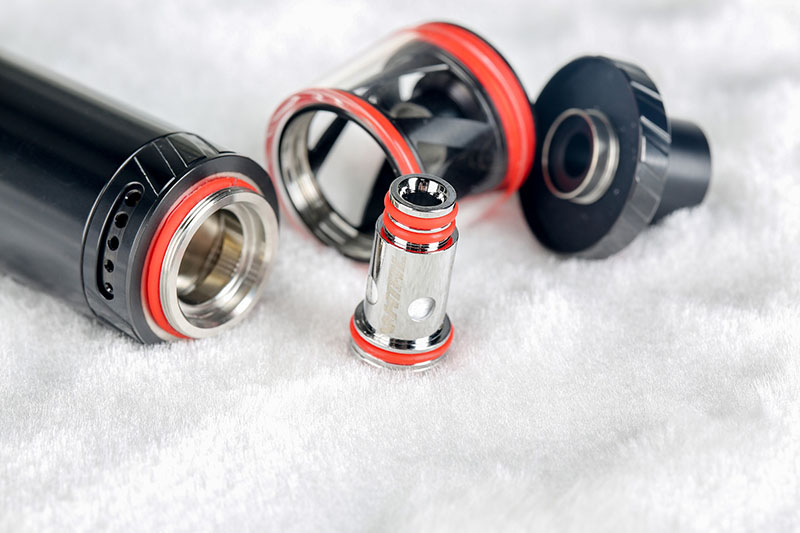
Vaping Inhalation Methods: Mouth to Lung vs Direct to Lung
There are two primary styles of inhaling vapor: Mouth-to-Lung (MTL) and Direct-to-Lung (DTL) vaping. Both can be mastered with practice, but your vape device often determines which method feels best.
- Mouth to Lung (MTL): Mimics cigarette smoking. You first draw vapor into your mouth, hold briefly, and then take a deep inhale into your lungs. This method pairs perfectly with vape pens, smaller pods, and nicotine salt vape juice. It delivers stronger nicotine satisfaction and is ideal for beginners or former smokers.
- Direct to Lung (DTL): Skips the mouth-hold. Vapor goes directly to your lungs in one pull. Larger mods with sub-ohm tanks or cartridges, and those that support wide airflow, are ideal for this method. It produces dense clouds and intense flavor, popular among hobbyists who enjoy cloud chasing. The trade-off is higher e-liquid consumption.
Both styles require steady pacing—whether short inhales for MTL or bigger lung pulls for DTL—to avoid coughing or discomfort.
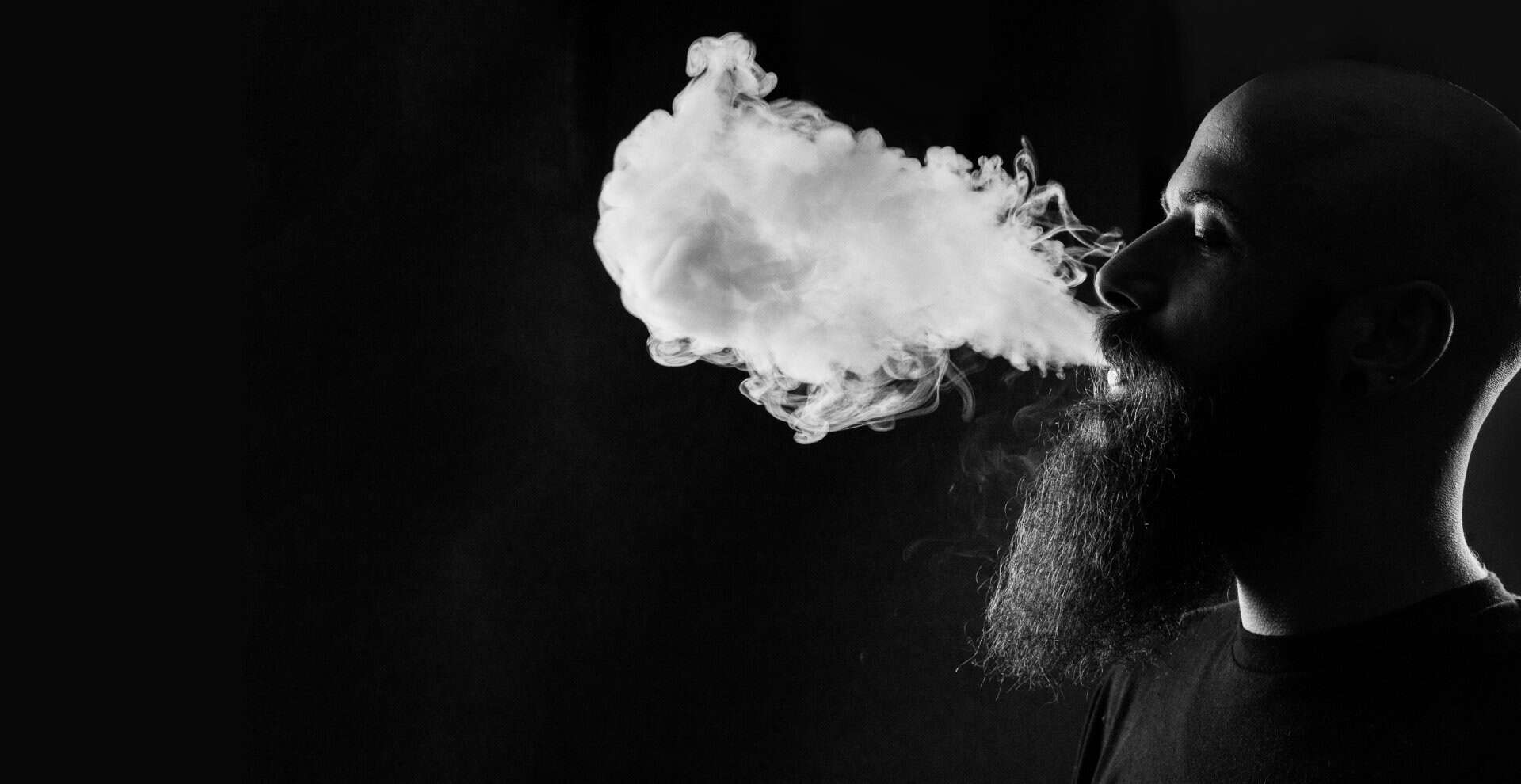
Different Types of Vaporizers
When people ask “how to vape?”, the answer depends heavily on the vape device chosen. There are thousands of models, but most fall into three categories: Pod Systems, Disposable Vapes, and Sub-Ohm Kits. Each type serves different needs—whether you’re a casual user seeking convenience, a budget-conscious shopper looking for refillable options, or an enthusiast seeking optimal vapor performance.
By aligning your device with your goals, you’ll avoid confusion and choose equipment that complements your style—whether you’re a stealth vaper, experimenting with RDTL vaping, or diving into advanced mods.
Compact Pod Systems for MTL Vaping
Vape pods, such as the SMOK Nord 5, have surged in popularity. Compact and discreet, they rely on vape cartridges that can be pre-filled or refillable. Designed for MTL Vaping, they pair well with nicotine salt vape juice, delivering strong hits in smaller clouds. Most feature air pressure auto-draw systems, though some include a manual fire button for precision.
Pod systems appeal to budget-conscious vapers. Refillable models reduce long-term costs, while still providing a satisfying throat hit. Easy to use, portable, and practical, they bridge the gap for users transitioning from cigarettes to vaping.
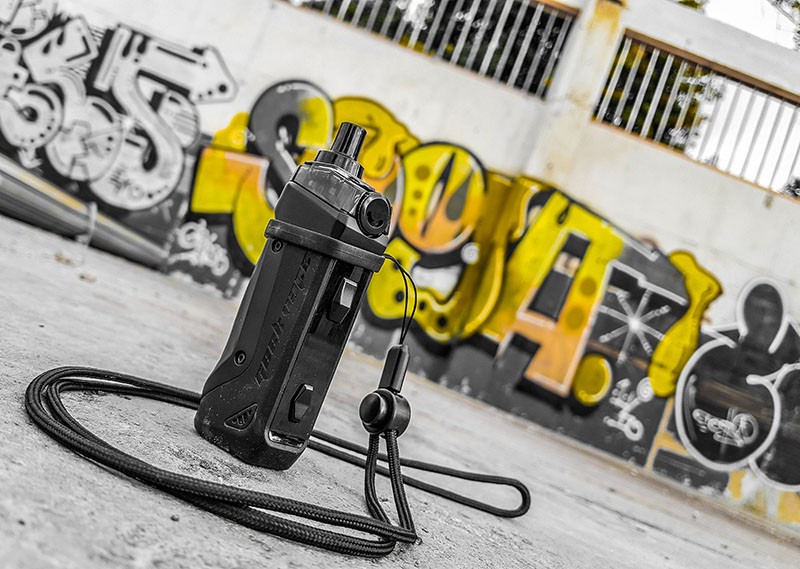
Convenient Disposable Vape Devices
Disposable vapes are the most straightforward entry point. Ready to use out of the box, they require no charging, refilling, or maintenance—just inhale until the liquid cartridge is empty, then dispose of responsibly. These are favorites among casual & social vapers and younger adults drawn to portability, stylish designs, and trendy flavors.
While perfect for stealth vaping, disposables are less cost-effective in the long run compared to refillable Vape Kits. They also generate more waste, making them less sustainable, though their simplicity and nicotine level consistency keep them in high demand.
Sub-Ohm Vape Kits
Sub-ohm Vape Kits are designed for direct-to-lung vaping and massive cloud production. These larger vaping devices include a Vape Tank, adjustable wattage, and replaceable coils. Often paired with high-VG e-liquids, they excel at flavor and performance. Many kits support RDTL Vaping, striking a middle ground between MTL and DTL.
While they demand more upkeep (coil changes, tank cleaning, wattage tuning), they reward users with unmatched control and customization. Perfect for hobbyist vapers who thrive on experimenting with airflow, wattage, and different juice ratios.
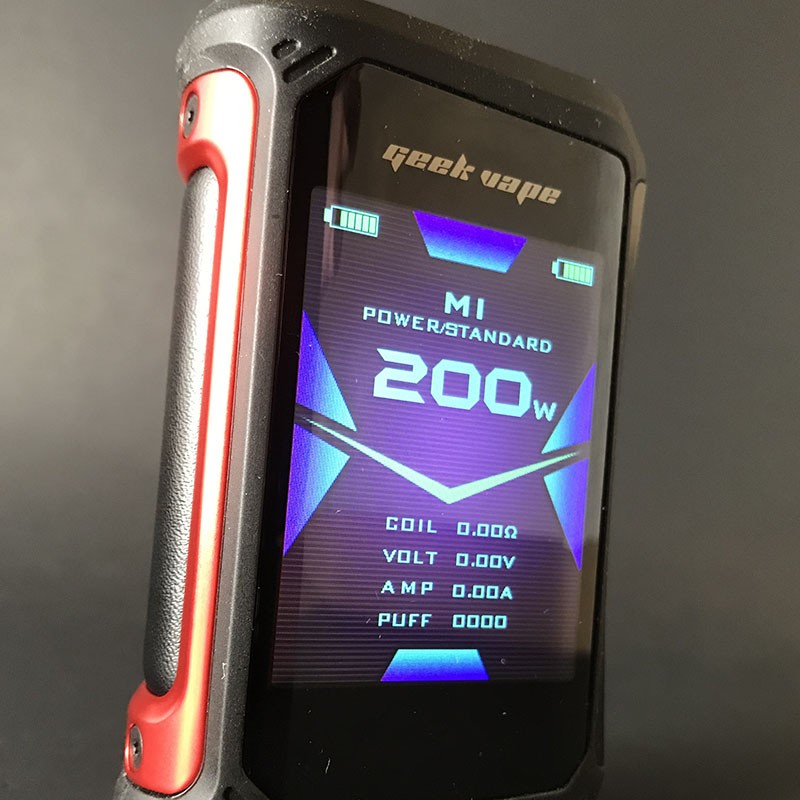
Find Your Perfect Vape Style
Answer a few quick questions. Result appears instantly with device & liquid suggestions.
How to Use a Vape Mod
Advanced Vape Kits, like box mods, can seem intimidating, but most follow similar features. To improve scanability, here’s a list format of key functions:
- Manual Fire Button: Triggers vapor production. Typically requires rapid clicks (5x) to turn the device on or off.
- Wattage Adjustment Buttons: Control vapor strength and flavor intensity. Adjust within the coil’s recommended range.
- Digital Screen: Displays wattage, battery life, and other settings.
- Safety Features: Short-circuit protection, overcharge prevention, lock modes, and automatic shut-offs.
- Coil Activating Process: Always prime your coil before first use and start at lower wattage settings.
Learning these basics reduces the risk of coil-activating errors or misfires while improving your long-term vaping experience.
Turning a Vape Mod On/Off
Nearly all mods power on or off with five rapid clicks of the manual fire button. This design prevents accidental firing and is an essential safety habit. Always deactivate your device before storing it in a pocket, purse, or car. For those accustomed to disposable vapes or pods, this is the first adjustment that highlights how mods require more active involvement—but in return, offer much greater customization options.
How to Adjust Wattage on Box Mods
Most box mods allow fine-tuned wattage adjustments with “+/-” buttons near the firing button. The correct wattage range depends on your resistance coil and the manufacturer’s guidance. Running wattage that is too high burns cotton instantly, while running it at too low a wattage causes weak vapor or flooding. Start within the coil’s recommended wattage, then experiment to find your personal preference.
This flexibility allows you to tailor the vapor warmth, intensity, and cloud size to your exact liking. It also helps extend coil life and reduces wasted e-liquid. For newcomers, mastering wattage is a game-changer that takes your vape from generic to personalized.
Temperature Control for Rebuildable Vape Tanks
Some advanced mods include temperature control (TC) settings. Designed for rebuildable devices like RDAs, RTAs, and RDTAs, TC utilizes specific wire types, such as stainless steel or titanium, to regulate coil temperature. The benefit is preventing dry hits by cutting power if your wick runs dry.
While most beginners won’t need TC, it’s an advanced feature for enthusiast vapers who enjoy custom builds and precise control. For everyday use, wattage mode is sufficient, but TC shines when experimenting with rebuildables or fine-tuning flavor delivery.
Pre-Use Checklist
Use before first puff or new coil.
Tip 5-clicks will turn most vape devices on or off.
Vaping Tricks
Beyond everyday use, many vapers enjoy learning tricks like the Ghost Inhale, French Inhale, or advanced Jellyfish vaping. These rely on controlling airflow, exhale timing, and cloud density. For best results, use high-VG juices, which create thick vapor ideal for tricks.
⚠️ Note: Tricks should only be attempted once you’re comfortable with your device. Avoid unsafe coil builds, and never exceed recommended wattage. Tricks are a fun way to personalize vaping but shouldn’t compromise safety.
Common Vaping Mistakes 🚫
- Chain vaping too quickly, causing coil activating issues or burnt cotton. Spacing out puffs gives the wick time to re-saturate and prevents overheating. (vapestore.co.uk, greetvape.co.uk)
- Using the wrong VG ratio for your coil, leading to dry hits or flooding. Thick e-liquids can clog or overwhelm a wick not designed for high-VG juice. (vapestore.co.uk, lostmary.com)
- Ignoring your nicotine level — too high may cause dizziness, nausea, or “nic-sick” sensations, while too low may not satisfy cravings. Nicotine overdose symptoms include dizziness and headache. (NSW Health, American Lung Association, PMC)
- Forgetting to prime your coil before first use. Skipping priming often leads to a burnt taste, dry hits, and dramatically shorter coil life. (vaporfi.com, wicksandwires.com)
- Inhaling too sharply instead of steady short inhales, which can flood the coil, cause spitback, or result in weak vapor. Gentle, consistent draws give the wick time to vaporize the liquid rather than pull too much fluid into the coil chamber. (The Electric Tobacconist Ltd., Generation V, The Vape Mall)
Commonly Asked Questions (FAQ) ❓
How to vape for beginners?
Start with an easy-to-use Vape Pod or disposable vape, select a comfortable nicotine level, and focus on MTL Vaping.
Do I inhale while vaping?
Yes. For MTL Vaping, inhale first into the mouth, then lungs. For DTL Vaping, pull vapor straight into your lungs.
What is the correct way of vaping?
There’s no single “correct” way—your inhalation techniques should match your vape device. Use short inhales for pods and deep inhales for sub-ohm setups.
How long should you hold in a vape hit?
Only 1–2 seconds. Holding longer doesn’t improve absorption and can increase discomfort.

